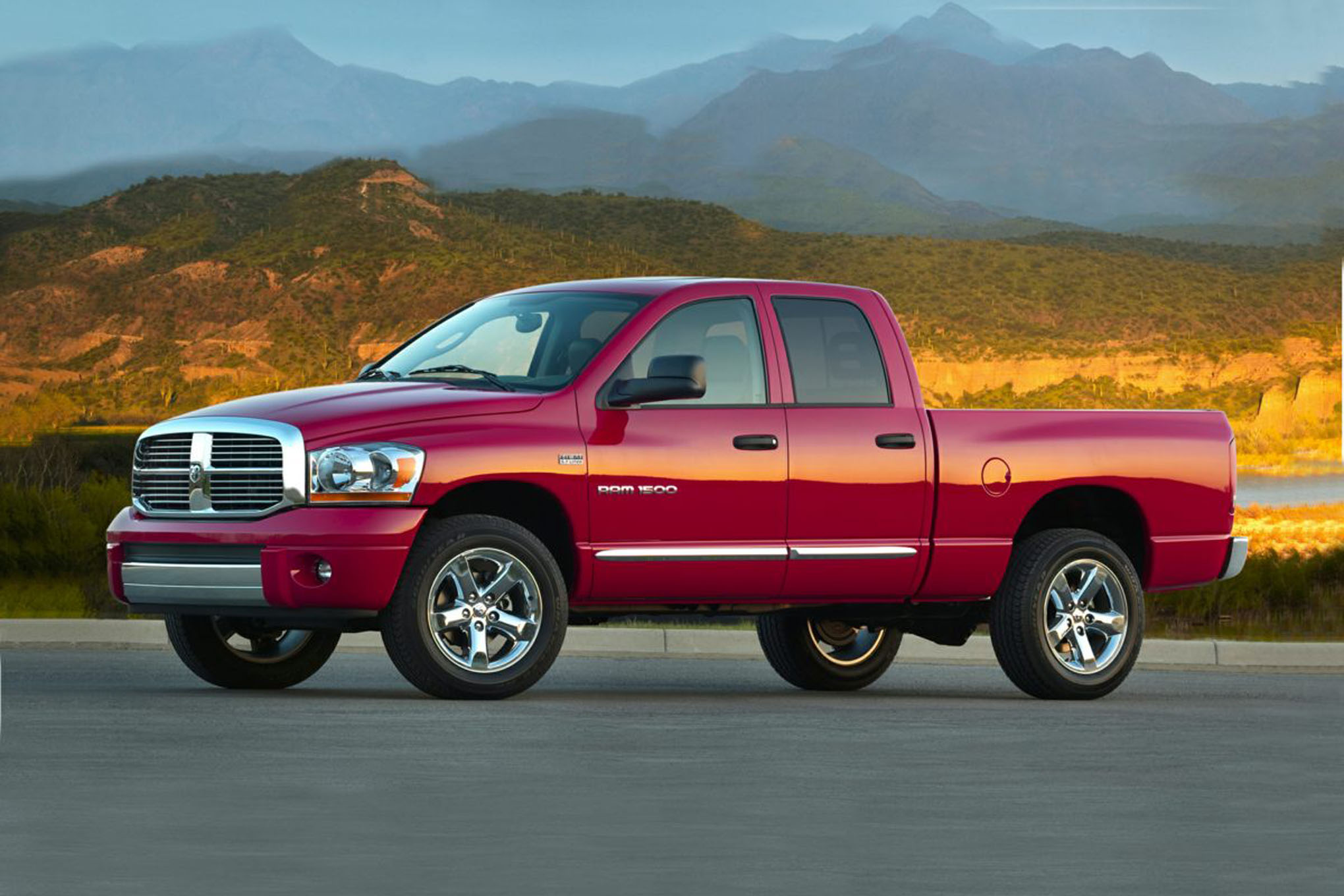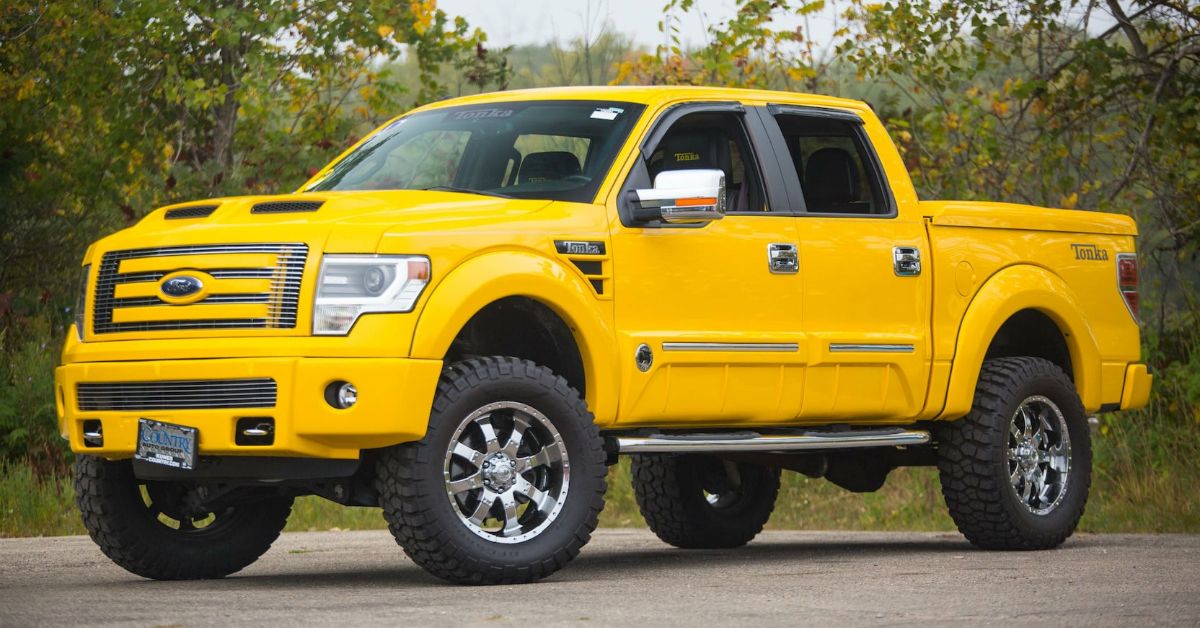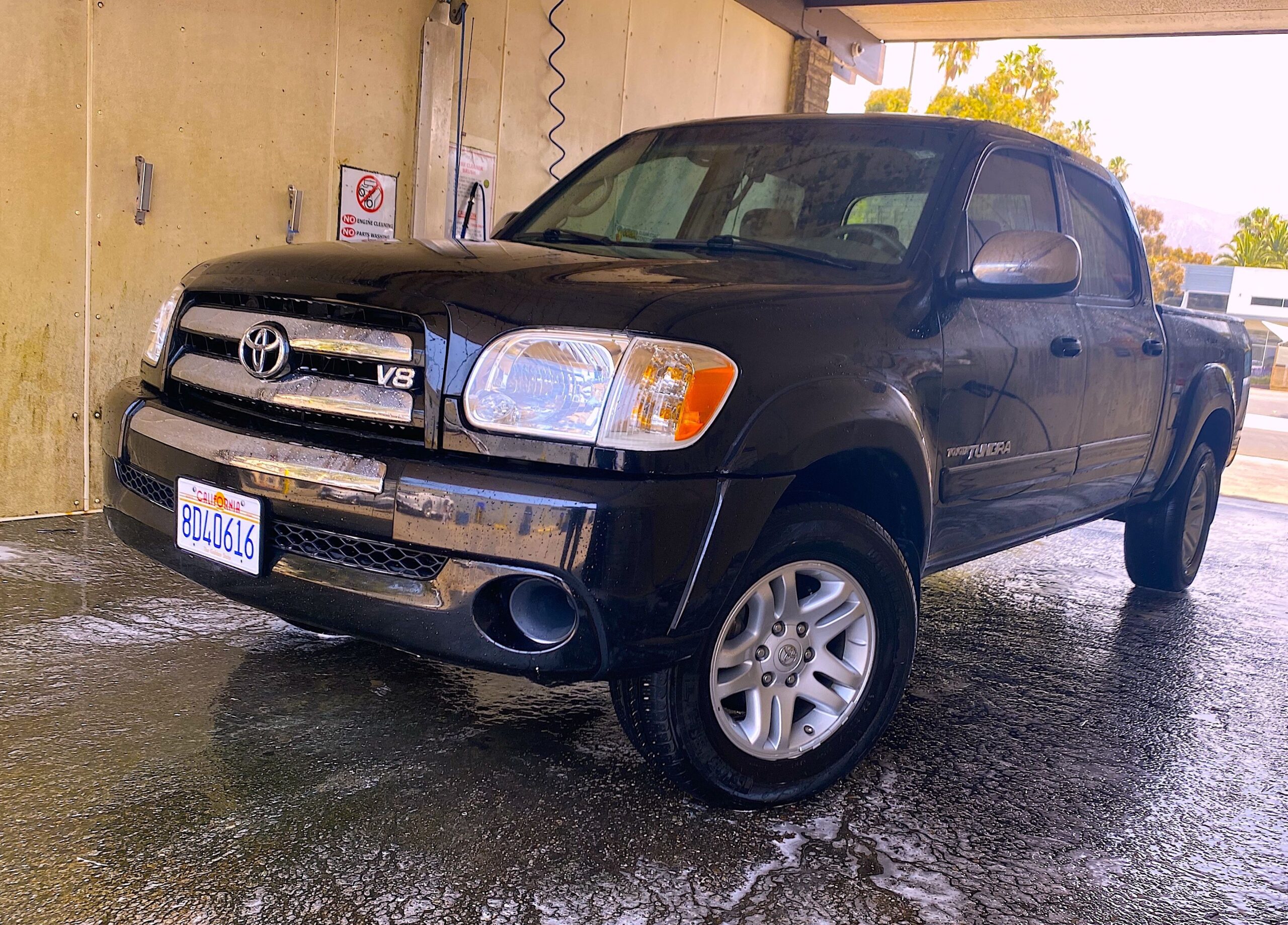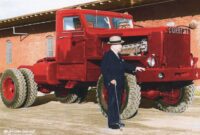Used Pickup Trucks: Your Comprehensive Guide to Finding the Perfect Workhorse pickup.truckstrend.com
Introduction: The Enduring Appeal of Used Pickup Trucks
In a world increasingly driven by specialization, the pickup truck stands as a testament to versatility. From hauling lumber to towing boats, navigating construction sites, or simply serving as a family’s adventurous daily driver, a pickup truck is an indispensable tool for millions. While the allure of a brand-new, gleaming truck is undeniable, the smart money often points to the robust and ever-growing market of used pickup trucks.
Used Pickup Trucks: Your Comprehensive Guide to Finding the Perfect Workhorse
A used pickup truck represents a unique blend of value, utility, and proven reliability. By opting for pre-owned, buyers can bypass the steep initial depreciation that new vehicles experience, gaining access to a more capable and feature-rich vehicle for a fraction of the cost. This guide will delve into every aspect of acquiring a used pickup, offering insights, practical advice, and essential considerations to help you make an informed decision and drive away with the perfect truck for your needs.
Why Choose a Used Pickup Truck? Unlocking the Value
The decision to buy a used pickup truck over a new one is often driven by compelling advantages:
- Significant Cost Savings: The most obvious benefit is the lower purchase price. New trucks depreciate rapidly in their first few years. Buying used means someone else has absorbed that initial depreciation, allowing you to get more truck for your money.
- Wider Selection and Accessibility: The used market offers an immense variety of makes, models, trims, and configurations, including those no longer produced. This expands your options significantly, increasing the likelihood of finding a truck that perfectly matches your specific requirements and budget.
- Proven Reliability: Many popular truck models have a long-standing reputation for durability. By researching specific model years, you can often find a used truck with a known track record of reliability, allowing you to benefit from real-world owner experiences.
- Lower Insurance Costs: Generally, older and less expensive vehicles come with lower insurance premiums, contributing to overall savings in ownership costs.
- Customization Potential: With a lower initial investment, you might have more budget available for aftermarket modifications, accessories, or personalized upgrades to truly make the truck your own.

Understanding the Market: Types of Used Pickups
The used pickup truck market is diverse, catering to a wide range of needs. Understanding the primary categories will help narrow down your search:
- Compact/Mid-Size Pickups: These trucks offer better maneuverability, fuel efficiency, and a more comfortable ride than their larger counterparts. Popular used options include the Toyota Tacoma, Chevrolet Colorado, Ford Ranger, Nissan Frontier, and Honda Ridgeline.
- Ideal for: City driving, light hauling, moderate towing, recreational use, off-roading where smaller size is an advantage.
- Full-Size Light-Duty Pickups: The most popular segment, offering a balance of capability, comfort, and features. This category includes the Ford F-150, Chevrolet Silverado 1500, Ram 1500, Toyota Tundra, and Nissan Titan.

- Ideal for: Daily driving, family transport, serious hauling and towing (boats, RVs, utility trailers), moderate work truck duties.
- Heavy-Duty (HD) Pickups: Designed for maximum towing and payload capacity, these trucks are built for serious work. Examples include the Ford F-250/F-350 (Super Duty), Chevrolet Silverado/GMC Sierra 2500/3500 HD, and Ram 2500/3500.
- Ideal for: Commercial use, towing large fifth-wheel RVs, heavy equipment, or extensive payload requirements. They often come with diesel engine options for even greater capability.

Key Considerations Before Buying: Your Pre-Purchase Checklist
Before you even start looking at specific trucks, define your needs and set realistic expectations.
- Determine Your Budget: Beyond the purchase price, factor in potential costs for insurance, fuel, maintenance, registration, and any immediate repairs or upgrades.
- Define Your Intended Use:
- Work Truck: What kind of payload will you carry? How much will you tow? Will it be on construction sites or paved roads?
- Daily Driver/Family Vehicle: How important are comfort, fuel economy, and passenger space?
- Off-Roading/Recreation: Do you need four-wheel drive (4WD), higher ground clearance, or specific off-road packages?
- Towing/Hauling: Know the maximum weight you need to tow or haul. This dictates engine size, transmission type, axle ratios, and whether you need a light-duty or heavy-duty truck.
- Research Reliability and Common Issues: Once you have a few models in mind, research their common issues for specific model years. Owner forums and consumer review sites are excellent resources.
- Check Vehicle History Reports (VHRs): A CarFax or AutoCheck report is non-negotiable. It provides crucial information on:
- Accident history (and severity)
- Salvage or flood titles
- Odometer discrepancies
- Service records
- Number of previous owners
- Recall information
- Consider Mileage: While lower mileage is generally preferred, a high-mileage truck that has been meticulously maintained can be a better buy than a low-mileage one that has been neglected. Look for consistent service records.
The Pre-Purchase Inspection: What to Look For
This is the most critical step. A thorough inspection can save you thousands in future repairs.
- Exterior Inspection:
- Frame Rust: This is paramount. Look underneath the truck, especially at the frame rails, suspension mounts, and crossmembers. Surface rust is common; deep, flaky, or perforated rust is a major red flag.
- Body Panels: Check for dents, scratches, uneven paint (indicating previous bodywork), and rust around wheel wells, rocker panels, and the bed.
- Tires: Inspect tire wear evenly across the tread. Uneven wear can indicate alignment issues or worn suspension components. Check tire brand and age.
- Lights and Glass: Ensure all lights work, and there are no significant cracks in the windshield or mirrors.
- Under the Hood (Engine Bay):
- Fluid Leaks: Look for oil, coolant, or transmission fluid leaks.
- Fluid Levels and Condition: Check oil (should be clean, not sludgy), coolant (clean, correct color), brake fluid, and power steering fluid.
- Belts and Hoses: Look for cracks, fraying, or bulges.
- Battery: Check for corrosion around the terminals.
- General Cleanliness: A clean engine bay might indicate a well-maintained vehicle, but also be wary of one that’s too clean, as it might be hiding leaks.
- Interior Inspection:
- Upholstery: Check for rips, tears, and excessive wear.
- Electronics: Test all power windows, locks, mirrors, radio, climate control, and dashboard lights.
- Odors: Musty smells could indicate water leaks or mold.
- Pedal Wear: Worn pedals can sometimes indicate higher mileage than the odometer suggests.
- Test Drive:
- Start-Up: Listen for unusual noises. Check for warning lights on the dashboard.
- Engine & Transmission: Accelerate smoothly. Listen for strange noises (knocking, ticking). Feel for smooth gear changes, both up and down. No jerking or slipping.
- Brakes: Test brakes at various speeds. Listen for grinding or squealing. The truck should stop in a straight line without pulling.
- Steering & Suspension: Drive over bumps to check for clunks or rattles. The steering should feel tight, with no excessive play.
- 4WD (if applicable): Test all 4WD modes to ensure they engage and disengage properly.
- Professional Mechanic Inspection: This is perhaps the most important tip. Even if you’re mechanically inclined, a trusted independent mechanic specializing in trucks can spot issues you might miss. It’s a small investment that can save you thousands.
Navigating the Purchase Process
- Where to Buy:
- Dealerships: Offer convenience, often a limited warranty, and sometimes Certified Pre-Owned (CPO) options (dealer-inspected, extended warranty). Prices are generally higher.
- Private Sellers: Often offer the lowest prices but come with the most risk. You’ll need to be diligent with your inspection and paperwork.
- Auctions: Can yield very low prices but carry the highest risk as vehicles are sold "as-is" with little to no opportunity for thorough inspection. Best for experienced buyers.
- Negotiation: Research the market value of the specific truck you’re interested in using sites like Kelley Blue Book (KBB) or Edmunds. Be prepared to negotiate, and don’t be afraid to walk away if the deal isn’t right. Factor in any known repair costs into your offer.
- Paperwork: Ensure you receive a clear title, a bill of sale, and any service records. Verify the VIN on the paperwork matches the truck. Understand local registration and tax requirements.
Common Challenges & Solutions with Used Pickups
While used trucks offer great value, they can come with specific challenges:
- Rust: Especially in colder climates where salt is used on roads, rust can be a significant issue, particularly on the frame.
- Solution: Thorough pre-purchase inspection of the frame is critical. Avoid trucks with significant structural rust. Consider rust-proofing if you live in a high-salt area.
- Neglected Maintenance: Some owners skip routine maintenance, leading to accelerated wear.
- Solution: Demand service records. A professional inspection will identify neglected items. Budget for immediate maintenance if records are sparse.
- Previous Modifications: Lift kits, oversized tires, engine tunes, or aftermarket exhaust systems can sometimes negatively impact reliability, fuel economy, or even void warranties.
- Solution: Understand the implications of any modifications. Generally, a stock truck is a safer bet unless you’re familiar with the specific modifications and their quality.
- High Mileage: While modern trucks are built to last, higher mileage can mean more wear on components like the transmission, suspension, or engine.
- Solution: Focus on maintenance history rather than just mileage. A well-maintained high-mileage truck can be a better buy than a poorly maintained low-mileage one.
Maintaining Your Used Pickup
Once you own a used truck, proactive maintenance is key to its longevity:
- Follow the Maintenance Schedule: Adhere to the manufacturer’s recommended service intervals for oil changes, fluid checks, tire rotations, and filter replacements.
- Address Issues Promptly: Don’t let small problems become big, expensive ones.
- Regular Cleaning: Wash your truck regularly, especially the undercarriage, to remove salt, dirt, and grime that can lead to rust.
- Monitor Fluids: Regularly check engine oil, transmission fluid, coolant, brake fluid, and power steering fluid.
Used Pickup Truck Price Guide
Disclaimer: Used vehicle prices are highly dynamic and vary significantly based on make, model, year, mileage, condition, trim level, engine type, features, region, and market demand. The ranges below are very general estimates and should only be used as a starting point for your research.
| Truck Category | Age/Mileage Profile | Typical Price Range (USD) | Key Factors Influencing Price |
|---|---|---|---|
| Compact/Mid-Size | Entry-Level: 10+ years old, 150,000+ miles | $5,000 – $15,000 | Condition, rust, 2WD vs. 4WD, engine type (4-cyl vs. V6), basic vs. loaded trim. |
| (e.g., Tacoma, Ranger) | Mid-Range: 5-10 years old, 75,000 – 150,000 miles | $15,000 – $25,000 | Maintenance history, accident history, specific model popularity (e.g., Toyota Tacoma holds value well). |
| Newer/Premium: Under 5 years old, < 75,000 miles | $25,000 – $40,000+ | Desirable trims (e.g., TRD Pro), specific features, excellent condition. | |
| Full-Size Light-Duty | Entry-Level: 10+ years old, 150,000+ miles | $8,000 – $20,000 | Engine (V6 vs. V8), 2WD vs. 4WD, cab configuration (regular, extended, crew), bed length, work vs. luxury trim. |
| (e.g., F-150, Silverado) | Mid-Range: 5-10 years old, 75,000 – 150,000 miles | $20,000 – $35,000 | Engine choice (e.g., EcoBoost, Hemi), specific trim packages (e.g., Lariat, LTZ, Laramie), accident history. |
| Newer/Premium: Under 5 years old, < 75,000 miles | $35,000 – $55,000+ | Advanced technology, premium features (e.g., panoramic roof, leather seats), specific off-road packages (e.g., Raptor). | |
| Heavy-Duty | Entry-Level: 10+ years old, 150,000+ miles | $15,000 – $30,000 | Engine type (gas vs. diesel), 2WD vs. 4WD, single vs. dual rear wheels, prior commercial use. |
| (e.g., F-250, Ram 2500) | Mid-Range: 5-10 years old, 75,000 – 150,000 miles | $30,000 – $50,000 | Diesel engine premium, specific towing/payload packages, maintenance records, condition of powertrain. |
| Newer/Premium: Under 5 years old, < 75,000 miles | $50,000 – $75,000+ | High-output diesel engines, top-tier luxury trims, low mileage, excellent condition, specific commercial upfits. |
Always use current market data from reputable listing sites and valuation tools (e.g., KBB, Edmunds, NADAguides) for the most accurate pricing information for a specific vehicle.
Frequently Asked Questions (FAQ) about Used Pickup Trucks
Q1: What’s the best used pickup truck to buy?
A1: There’s no single "best" truck; it depends entirely on your needs and budget. Popular choices known for reliability include the Toyota Tacoma and Tundra, Ford F-150 (especially with certain engine options), and Chevrolet Silverado/GMC Sierra. Research specific model years for known issues.
Q2: Is high mileage a deal-breaker for a used pickup?
A2: Not necessarily. Modern trucks can last well over 200,000-300,000 miles if properly maintained. A high-mileage truck with comprehensive service records is often a better buy than a low-mileage one with a questionable history. Focus on the truck’s overall condition and maintenance.
Q3: How important is a vehicle history report (e.g., CarFax/AutoCheck)?
A3: Extremely important. A VHR can reveal critical information like accident history, salvage titles, flood damage, odometer discrepancies, and service records, which are vital for making an informed decision.
Q4: Should I always get a professional pre-purchase inspection?
A4: Yes, absolutely. It’s a small investment (typically $100-$200) that can save you thousands in unexpected repairs. An independent mechanic can identify issues you might miss.
Q5: What are the biggest red flags when buying a used truck?
A5: Major red flags include significant frame rust, a salvage or flood title, multiple previous accidents, warning lights on the dashboard during a test drive, obvious fluid leaks, and a lack of maintenance records.
Q6: Are diesel trucks worth the extra cost for a used purchase?
A6: Diesel trucks typically cost more upfront and have higher maintenance costs, but they offer superior towing capacity, fuel economy (especially when towing), and longevity. If you frequently tow heavy loads or plan to keep the truck for a very long time, a diesel might be a worthwhile investment. For light-duty use, a gas engine is usually more economical.
Q7: How much should I budget for maintenance on a used truck?
A7: This varies greatly by make, model, age, and condition. Generally, expect to budget more for a truck than a car, especially for heavy-duty models. It’s wise to set aside at least $1,000-$2,000 initially for any immediate deferred maintenance and then an annual budget of $500-$1,500 for routine service and potential repairs.
Conclusion: Driving Away with Confidence
A used pickup truck offers an unparalleled blend of utility, value, and rugged capability. By approaching the buying process with careful research, a thorough inspection, and a clear understanding of your needs, you can unlock significant savings and acquire a vehicle that will serve you faithfully for years to come. Remember that patience and diligence are your best allies in navigating the used truck market. With the right preparation, you’ll be well on your way to finding that perfect workhorse, ready for any adventure or task you throw its way.



